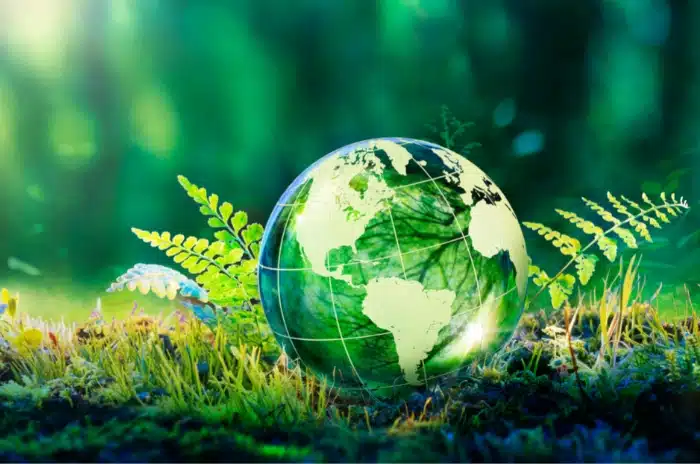Everyone talks about sustainability but what makes something sustainable and how does it compare to products that are environmentally friendly, recyclable and reusable? We’ve investigated the definition and looked into how consumers feel about sustainable products.
These days, sustainable products are far less of a nice-to-have — they are considered a necessity by consumers of all ages.
The good news when it comes to promotional products is that there are increasing numbers of sustainable options and ways to make the right choices when it comes to the environment.
What does sustainable mean?
There are a few ways to define sustainable and eco-friendly products these days and they can be confusing, especially when you add ‘green’, ‘recyclable’, ‘repurposed’ and ‘reusable’ into the mix.
The website thinkingsustainably.com describes eco-friendly as ensuring a product’s production,
manufacturing and packaging are favourable and create as little impact on the environment as possible.
Meanwhile, sustainability refers to ‘the practice of ensuring we don’t harm our natural resources while promoting and maintaining a good economy, yet being conscious about the future’. A company that produces goods sustainably is more proactive when it comes to restoring what it takes from the earth so there will still be materials or food sources to use in the future.
Recycled products are made from pre-used products; recycled plastic bottles are the key example. You will also find things like shoes and jewellery made from recycled plastic and other materials.
‘Repurposed’ tends to refer to one thing being used for another function; think of jars being used as vases or metal scraps being turned into works of art.
The other term is ‘circular economy’. This relates to the continual reuse of materials; for example old clothing can be turned into stuffing for quilts and pillows, which reduces the amount that goes into landfill. Even used coffee cups can be used to make asphalt for new roads.
Finally, ‘biodegradable’ means something can be naturally broken down with the help of bacteria or other living organisms.
A product is generally considered to be eco-friendly if:
- It has been produced in a way that reduces harm to the planet
- Its use has a lower impact on the environment
- Less energy is used during the production process
- It is highly biodegradable (think of water-soluble packing pellets instead of styrofoam)
It is sustainable if its use follows the above standards and also provides social and economic benefits for future generations.
An example of an eco-friendly success story is Repreve. This business turns plastic bottles into everything from clothes and shoes to sofas and phone cases.
What consumers want
According to Forbes, the sustainability imperative is being driven primarily by the consumer. Apparently, consumers across all generations—from Baby Boomers to Gen Z—are now willing to spend more for sustainable products. Just two years ago, only 58% of consumers across all generations were willing to spend more for sustainable options. Today, nearly 90% of Gen X consumers said that they would be willing to spend an extra 10% or more for sustainable
products.
In addition to this, McKinsey recently reported that a quarter of survey respondents indicated they are concerned about sustainability-related issues. These consumers go out of their way to buy second-hand items and to look for clothing made with environmentally friendly materials, such as recycled polyester.
In Australia, research has found that nine in 10 Australian consumers are more likely to purchase ethical and sustainable products.
Sustainable promotional products
When giving gifts or sharing promotional products with clients, choosing sustainable, reusable and/or eco-friendly items will add to the feel-good factor.
Where possible, you should at least check that the products in your branded merchandise or promotional collections are made by companies that adhere to ISO 14001 standards. This ISO is the standard for environmental management systems. It helps manufacturers and other companies ensure that they are meeting the minimum requirements when it comes to the global minimum standards for working ‘green’.
You can also work with your promotional goods provider to discuss sustainable and eco-friendly options. There are plenty of ways to give your team and clients planet-friendly merchandise.
Contact Honeycomb Agency to discuss planet-friendly promotional product options.


